"The resettlement meeting yesterday lasted till midnight, and I am reassured that no complain has been publicly made by the water resettlers over the past years," said Ma Shiming, director of the Diqing Resettlement and Development Bureau on Oct. 12. Ma was accompanying a group of Chinese reporters who came to investigate the Hydro-power resettlement projects in northwest Yunnan's Diqing Tibetan Autonomous Prefecture. Having seen the Xiaozhongdian hydro project in Shangri-la City, the reporting team visited two resettlement sites and two under-construction dams in the Deqin and Weixi counties on Thursday. 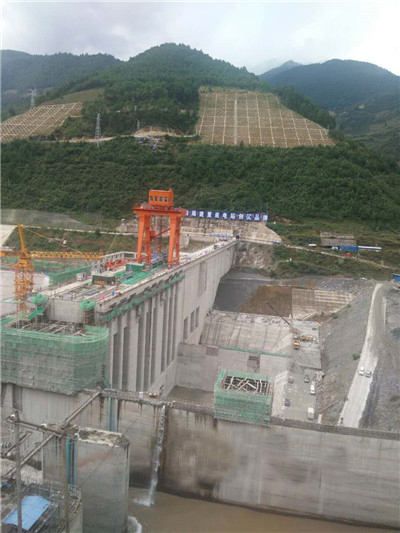
Lying on the west bank of the Lancang River, Deqin's Cizhong resettlement building is still at its beginning stage, and it is now connected to the highway across the river by a modern bridge, which, according to Ma, costs 70 million yuan. "At first, local folks either refused to sell their land to build the resettlement or disagreed to move, but after talked with them again and again in the past three years, they gradually changed their mind," said Li Guoshi, chairman of the Deqin People's Congress. The marathon talks usually took place in the villagers' homes at night because they are busy with their crops in the day. "Sometimes, the resettlement workers talked to the folks till early hours next morning," said Li Guoshi, adding that some officials also went to the field to help the folks grow and harvest the crops, in an effort to build up friendship and reach mutual understanding. 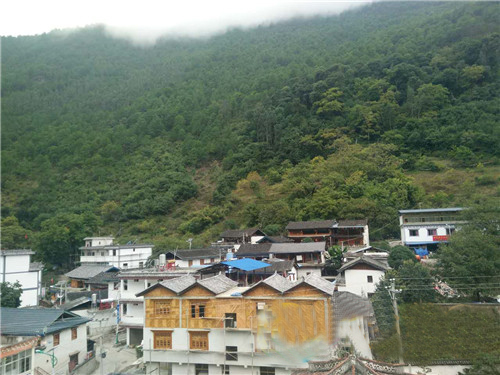
By getting together and labouring together, the folks began to feel that the official resettlement workers were trustworthy. And the two parties talked in depth in a relaxing air, with the concern of the folks fully expressed. Folks often say Cizhong forms a good place because it is the sole area where rice grows well in Deqin County. They have been living on the productive land for generations, and it is by no means easy for them to say goodbye to their land and houses. 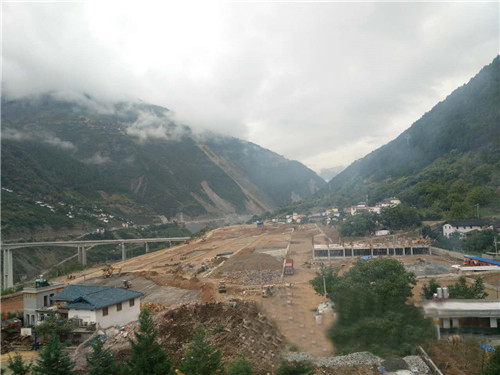
"For each hectare of land loss, local government will compensate the villagers 4,500 yuan per month. And anyone who lost his/her land will get an additional allowance of 410 yuan monthly." These are words told to the folks repeatedly. Aslo, the resettlement authority promised that each household shall be granted 330 square meters of reclaimed land for growing vegetables. After many rounds of talks in the past years, all the 164 involved households signed the land procurement agreement, with around 28 hectares of land acquired for resettlement. 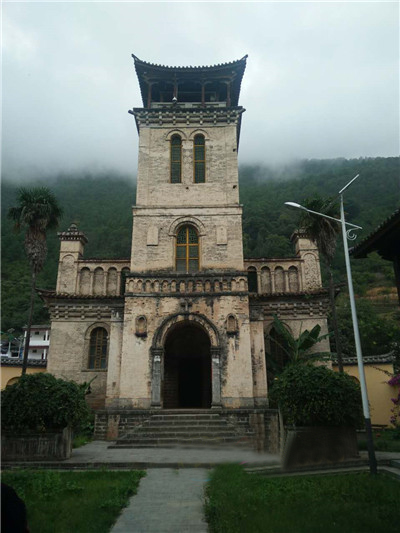
The Cizhong Catholic Church just lies in the middle of the resettlement area. First set up by French missionaries in 1867, the church welcomed visitors from over 20 countries, who were greatly impressed by the religious co-existence and harmony in the area. Recently, the church had its lighting system and other interior facilities renovated thanks to the 280,000 yuan donated by local resettlement bureau, and three hectares of land around the church has been reserved. In a restaurant near the church, four french people just finished dining, and one of them was bidding farewell to the host in fluent Chinese. Locals say they stay in Cizhong and produce craft beer there. 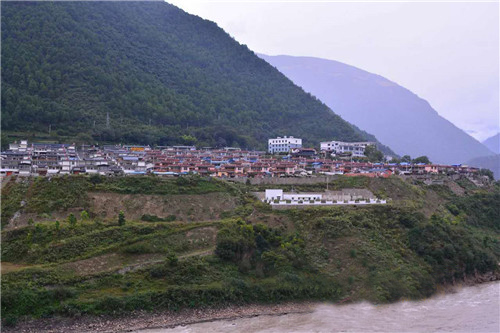
At the Gubu resettlement site in Weixi's Badi Township, lovely and spacious houses of the Tibetan, Han, Lisu, Naxi and Bai styles stand together. And more than 100 relocated households from the neighboring Lidi and Wulongnong hydropower projects have lived there for more than one year. The two projects involve more than 2,000 resettlers. Also on the west bank of the Lancang River, the Gubu resettlement is equipped with a market, basketball courts, restrooms, meeting rooms, ballrooms, and above all, a waste water treatment plant. "The treated water is not emptied into the river. Instead, it is used to irrigate a nearby filled field which is formed by residues from the Cizhong resettlement under construction. The field will be turned into a industrial base collectively owned by the resettlers. 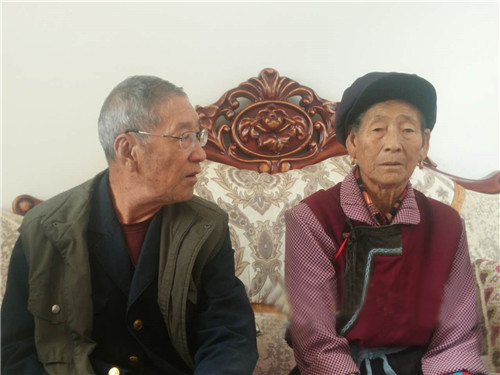
"Just great. We are now really bettered off thanks to good policies by the Party and the government. The hydro projects will light up more households, so we should support them. And I wish to live longer to enjoy the happy life with my wife," said Li Youyi, a Naxi resettler aged 81. Li used to live in a steep and uneven place where he said it was hard for the aged to walk about. The shabby toilet was 200 meters off his house. To win trust and respect from folks, resettlement officials should first of all be fair and just and never get greedy and corrupted. "I am proud to say that every cent of the subsidy and allowance money was handed over to the displaced folks and none of the Diqing resettlement officials was accused of favouring relatives in subsidy allocation or laundering public fund," said Diqing resettlement director Ma Shiming. Over the years, billions of yuan have been safely handed out to the hydro resettlers in the prefecture. Mis-conduct and corruption were never found by provincial discipline inspectors. The hydro projects also improved the resettlers mindset and life style. With an increasing number of hydro workers in the neighborhood, Tibetan resettler Chen Wenxin embarked on wholesale of vegetables, while his wife runs a restaurant with a monthly income of 20,000 yuan. "In the past, the folks just laboured in the field all day long, but now the seniors often have group dances in the evening and youngsters play basketball," said Chen. In the future, the Diqing resettlement workers will focus more on industrial cultivation for and technical training to the resettlers, so that they can either set up their business or get employed easily. By Eric Wang in Deqin and Weixi counties
|











7740f3b5-9ecb-438e-9052-76cb2d4bb671.jpg)

